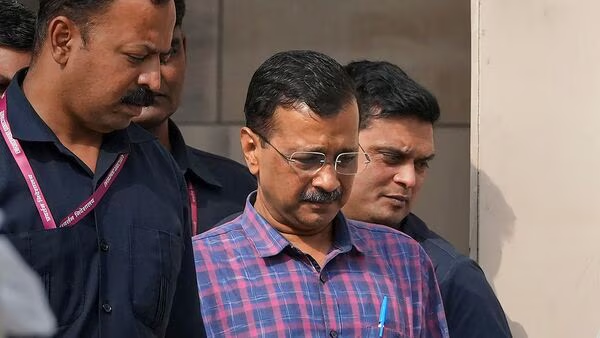Israel’s war with Hamas has now expanded on three fronts: a renewed push inside Gaza, direct clashes with Syria’s interim authorities, and sustained diplomatic–military pressure to strip Hezbollah of its arsenal. These parallel tracks are reshaping regional power balances far beyond the earlier Israel-Hamas cease-fire framework. These new developments emerge at a critical juncture when Iran’s weakened “axis of resistance” opens unprecedented opportunities for diplomatic realignment and regional stability.
Israel at a Crossroads: Rethinking Security and Diplomacy
Israeli strategy now stretches across Gaza, southern Lebanon, and southern Syria, creating a pivotal moment that can either entrench perpetual conflict or open a path to a more stable regional order. Three simultaneous campaigns—renewed urban operations in Gaza, pre-emptive strikes inside Syria, and a diplomatic push to disarm Hezbollah—share one overarching goal: permanently neutralising Iran’s “axis of resistance.”
In Gaza, “Operation Gideon’s Chariots” has shifted south into Deir al-Balah, carving corridors through central neighbourhoods and pushing Israel’s control to roughly two-thirds of the strip. The price is staggering: a shrinking humanitarian zone, acute famine conditions, and intensifying UN scrutiny. Yet Jerusalem shows no appetite for halting the offensive until Hamas’s last brigades and the remaining Israeli hostages are accounted for.
Across the Golan frontier, Israel’s July 16 strikes on Damascus warn Syria’s interim authorities that any heavy-force presence in Druze-majority Suwayda will trigger further retaliation. A fragile U.S.-brokered cease-fire now hinges on Damascus keeping armour out of a de-facto buffer zone, underscoring Israel’s determination to fashion a security perimeter that Tehran can no longer exploit.
Meanwhile, along the Lebanese border, Israel—backed by Washington and Paris—has made Hezbollah’s demilitarisation the price for normalising ties and allowing tens of thousands of displaced Israelis to return home. Beirut faces a stark choice: either facilitate a phased surrender of Hezbollah’s rocket arsenal or risk renewed war that its shattered economy cannot withstand.
Taken together, these tracks reveal a strategic thesis: military pressure plus coordinated diplomacy can degrade non-state militias faster than Iran can replenish them, opening space for new alignments from the Gulf to the Levant. Success, however, is not guaranteed. Gaza’s worsening humanitarian disaster threatens to erode international patience; Syrian and Lebanese leaders must balance domestic legitimacy against the spectre of deeper Israeli incursions; and Hezbollah’s calculus between political survival and ideological resistance remains uncertain.
Supreme Court Tells Cops to Learn Free Speech—But Does It Follow Its Own Advice?
The Netanyahu Paradox
Benjamin Netanyahu’s leadership presents a fundamental paradox: achieving significant strategic victories while maintaining deeply divisive domestic standing. The October 7 attacks initially shattered Israel’s deterrent credibility and Netanyahu’s political standing. However, subsequent military successes against Iran’s axis of resistance have created opportunities for diplomatic breakthroughs that could define his legacy
Netanyahu’s strategic vision of confronting Iranian nuclear threats has achieved unprecedented success. The systematic dismantling of Hamas’s military capabilities, Hezbollah’s command structure, and Iranian nuclear infrastructure represents the most significant degradation of threats to Israeli security in decades. These achievements establish Israel as the region’s undisputed military power while creating conditions for expanded peace agreements.
The establishment of Israel-U.S. operational coordination against Iran demonstrates Netanyahu’s success in securing American commitment to Israeli security priorities. Unlike previous conflicts where Israel operated primarily alone, the Iran confrontation featured unprecedented U.S. military participation. This coordination elevates Israel’s strategic position and provides templates for future cooperation.
Netanyahu’s recent meetings with President Trump on 6th and 7th July, highlight an unusually close and public alliance, with both leaders demonstrating a bond that is more personal and strategically coordinated than many historic partnerships between world leaders. This relationship projects strength to both regional and domestic audiences, countering claims that Netanyahu has harmed US-Israel ties, while also serving their mutual political interests and facilitating behind-the-scenes cooperation on regional security and the Gaza conflict
However, Netanyahu’s domestic political situation remains precarious. His leadership style, characterized by blame deflection and divisive rhetoric, has undermined national unity during critical periods. The challenge of transitioning from wartime leadership to peace-building requires different skills and approaches that may not align with Netanyahu’s political instincts.
The imperative for political transition becomes increasingly apparent as strategic objectives are achieved. Netanyahu’s legacy would benefit from ensuring smooth governmental transitions that maintain strategic gains while allowing fresh leadership to pursue diplomatic consolidation. The success of expanded Abraham Accords and regional peace initiatives may require leaders less burdened by domestic controversy and more capable of building broad consensus.
Revival of the Abraham Accords: Regional Transformation
Israeli military successes against Iran’s proxy network have fundamentally shifted regional dynamics, empowering Israel and generating unprecedented momentum for expanding the Abraham Accords. Arab nations, observing Iran’s weakened influence, are now more open to constructive engagement with a militarily dominant Israel.
Saudi Arabia, while officially maintaining that normalization depends on Palestinian statehood, is privately signaling that the removal of Hamas from Gaza is the minimum requirement for renewed dialogue. This reflects a broader shift in Riyadh’s priorities toward curbing Iranian influence in the region. The Kingdom’s evolving stance suggests potential flexibility as regional dynamics continue to change, especially as the threat from Iranian proxies diminishes.
Behind closed doors, Saudi negotiators told US counterparts that any public step toward Israel now depends on (1) a verified cessation of hostilities and (2) tangible progress at the Franco-Saudi–co-chaired UN conference on Palestinian statehood slated for July 28-29. As a result, the earlier idea that simply removing Hamas from Gaza would unlock Saudi entry into the Accords now appears over-simplified.
Israel’s July 16 airstrikes on Damascus and Sweida prompted back-channel diplomacy. Multiple outlets confirm indirect Israel-Syria meetings in Baku, mediated by Turkey and the US, to discuss a southern demilitarised zone and possible future normalisation. Transitional President Ahmed al-Sharaa excluded himself from the sessions, but Syrian envoys signalled openness to “coordination offices” short of embassies. The Syria file has shifted from a purely kinetic theatre to a hybrid of coercive strikes plus exploratory diplomacy. Any Abraham Accords expansion that includes Damascus will hinge on Iranian draw-downs in Syria—now a negotiating chip, not a pre-condition.
Arab-led reconstruction in Gaza is becoming strategically important, positioning Arab nations as key stakeholders in Palestinian welfare while also legitimizing Israel’s security requirements. Under this emerging arrangement, Israeli military presence will be limited to border monitoring and control of the Philadelphia Corridor, allowing Arab partners to take the lead in rebuilding efforts. This division of responsibilities helps balance Palestinian aspirations for self-governance with Israel’s imperative for lasting security.
Simultaneously, new alternatives to the two-state solution are gaining traction, such as the “Emirates Plan” proposed by Hebron sheikhs, which offers full recognition of Israel as a Jewish state and suggests forming an autonomous “Emirate of Hebron” aligned with the Abraham Accords.
Gaza Reconstruction: The Clock Ticks
Arab League Plan – Calls for a $53 billion, three-phase rebuild under Palestinian technocrats gained new momentum after DAWN and French diplomacy lobbied the UN Security Council for endorsement.
Palestinian Authority – PM Mohammad Mustafa announced a Cairo Reconstruction Conference “once a ceasefire is in place,” and confirmed a planning team is already drafting project pipelines.
Geopolitical Implications: A New Regional Order
The coming three months present a pivotal opportunity to reshape West Asian politics, as a weakened Iran, receptive Arab states, and robust American diplomatic backing converge to enable unprecedented peace-building efforts. Recent reassessments show that Iran’s threat was likely overstated, creating new diplomatic possibilities that were previously blocked by deterrence fears.
Israel’s military operations have set a new benchmark for precision and effectiveness, consistently degrading adversary capabilities with minimal collateral damage—demonstrating technological and strategic superiority that bolsters regional deterrence and diplomatic leverage. This evolving security architecture now extends beyond bilateral ties, with potential inclusion of Syria and Lebanon promising to further isolate Iranian proxies and foster broader regional cooperation.
The Abraham Accords remain the organising framework for regional realignment, but the past 30 days have replaced the earlier narrative of linear expansion with a far more sequenced, conditional, and conflict-linked reality. Normalisation is no longer merely a function of shared threat perceptions about Iran; it is now explicitly tethered to the Gaza end-game, Syrian border security, and the future of Hezbollah’s arsenal. Stakeholders who ignore these new linkages risk misreading the next phase of Middle-East diplomacy.
Israel has seized a narrow window created by Iran’s over-extension, but enduring stability will hinge on marrying kinetic success with credible reconstruction plans, inclusive governance models for Gaza, and security guarantees that all border communities—Israeli, Palestinian, Syrian, and Lebanese—can accept. Without that diplomatic ballast, today’s gains risk becoming tomorrow’s prelude to an even wider war.




